Iran's Minister Of Education Criticized Over Gender Segregation Remarks
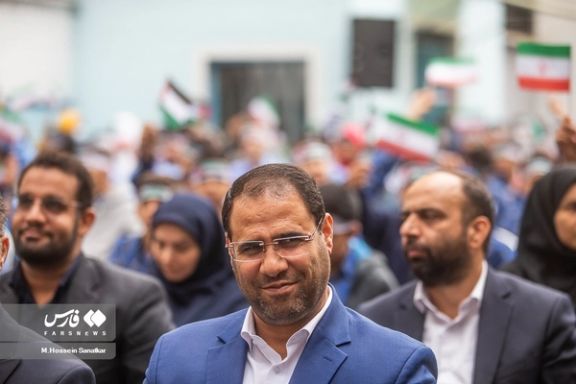
Iran’s Education Minister Reza Morad Sahraei said "textbooks must be differentiated for girls and boys, and modesty must be institutionalized throughout society."

Iran’s Education Minister Reza Morad Sahraei said "textbooks must be differentiated for girls and boys, and modesty must be institutionalized throughout society."
He added that the Islamic Republic does not accept "Eastern views" of women and girls, nor does it accept "feminism", which he deems "perverted”, in comments which come amidst tightening hijab and chastity laws in Iran.
His comments were criticized by a former cabinet member. Former deputy of Iran's Ministry of Education Ibrahim Saharkhiz said gender cannot be a factor in mathematics, science, and literature, highlighting there are greater challenges in the regime's education system like its mass teacher shortage "of 300,000 teachers [which] must be addressed first, then the gender issues of students."
He was not alone in his criticism which swelled on social media. In the wake of the Women, Life, Freedom protests, a growing number of men and women in Iran are speaking out against the Islamic Republic's crackdown on hijab and women's freedoms.
Iranian journalist Maryam Lotfi, wrote on her X account: "No matter how much some families try to reduce gender stereotypes in their children, the educational system undermines their efforts.”
Sahraei responded to the criticisms on Monday, stating: "The social needs of girls and boys are different from each other, and religious and educational books are different in some cases; as well as the needs of girls' and boys' schools."
The regime’s attempt to implement a gender-segregated curriculum follows the women-led uprising which began in the wake of the death of Mahsa Amini, which saw thousands of female students chanting slogans against the government and tearing photos of Iran’s current leader Ali Khamenei and Ruhollah Khomeini, the founder of the Islamic Republic.
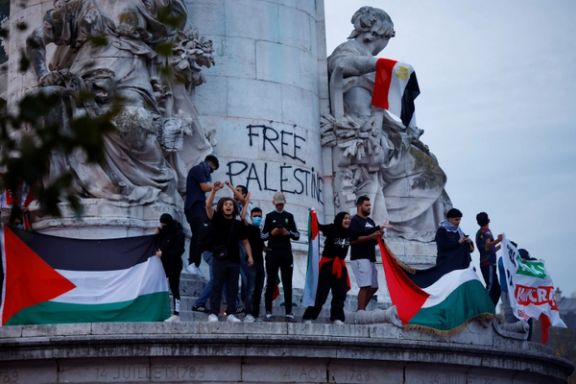
A hardliner politician in Iran close to Supreme Leader Ali Khamenei said on Monday that the Islamic Republic must take advantage of anti-Israeli protests in Western countries.
"We should make good use of the demonstrations being held in Berlin, Washington DC, London and Paris in condemnation of Israel," said Saeed Jalili, the representative of Iran's Supreme Leader Ali Khamenei in the Supreme National Security Council, amid accusations about Iran's involvement in anti-Israel rallies in the UK.
"Today's enemies face not only Gaza, but the whole world,” said the hardliner.
Last month the British newspaper The Times reported that Iranian agents have been stirring up unrest in the UK through Gaza protests, and that the regime is directly involved by physically present operatives at protests and conducting online disinformation campaigns.
In a sarcastic comment, Khamenei had dismissed the accusation, saying, "They claim Iran is responsible for gathering people in England; how about the Basij of London and the Basij of Paris?"
This is while it is known that Kahmenei has affiliated centers in the United Kingdom. One such entity in London, The Islamic Center of England, was shuttered for some time following an investigation by the UK Charity Commission into the way the organization was run.
There have been repeated calls for the UK to ban Iran's Islamic Revolutionary Guard Corps, after the government reported threats emanating from the notorious organization. There is some pressure on the British government to intensify its campaign against Iran.
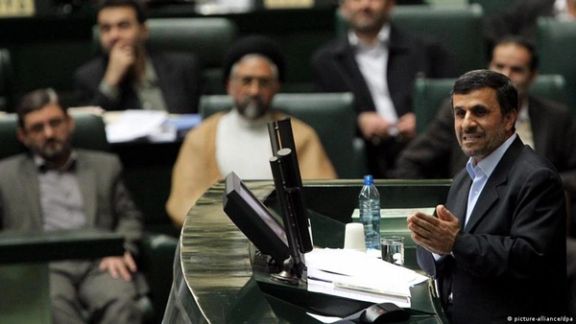
As one group of hardliners in Iran is purging rivals from the March parliamentary elections, former president Mahmoud Ahmadinejad also finds himself at odds with them.
The former governor-general of Tehran Province, a key figure in Ahmadinejad’s camp, has emphasized the former president’s divergences with the ultraconservative Paydari Party and its affiliated group, the Strategic Network of Friends of the Revolution, more commonly known by its Persian acronym SHARIAN.
Morteza Tamaddon has maintained that, in contrast to Paydari, a totalitarian ultraconservative group, Ahmadinejad relies on the support of the masses. He added that Ahmadinejad's actions are inspired by the demands of the people.
Although Ahmadinejad came to power in 2005 thanks to support from Abadgaran, which later became the backbone of what is known today as Paydari, he never admitted that he was close to the party. However, nearly all of his aides and cabinet ministers during his presidency (2005 to 2013) were Paydari's members and leaders.
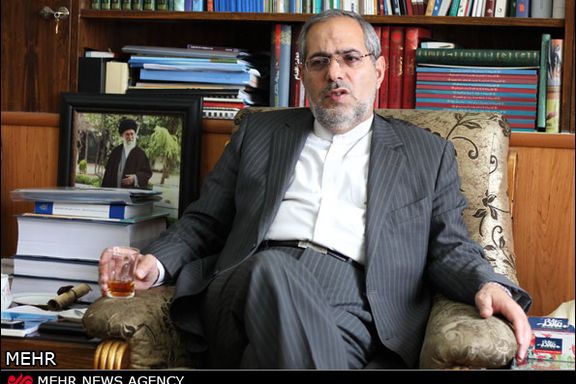
However, after Ahmadinejad fell out with Supreme Leader Ali Khamenei, Paydari distanced itself from the populist president. Between 2016 and 2022 Ahmadinejad was politically active and extremely vocal against Khamenei and the ruling hardliners around him. During that period, Ahmadinejad even criticized entities operating under the aegis of Khamenei's office and branded them as corrupt institutions. This set him apart diagonally from Paydari, which advances its political objectives by appeasing Khamenei.
During the past year, Ahmadinejad has been conspicuously silent, giving rise to rumors that he was being kept under strict control, like former Reformist President Mohammad Khatami. However, unlike Khatami, Ahmadinejad was allowed to travel to the United Arab Emirates, Turkey and most recently Guatemala with minor problems.
Speaking about Ahmadinejad's possible activity to send his supporters to the Majles (parliament) in the upcoming elections, Tamaddon said that "The majles is no longer very influential in people's lives and its prestige has been harmed. Generally speaking, the Majles [elections] is not among the people's priorities."
Tamaddon emphasized, "Every segment of society should sense the necessity of sending its representatives to the parliament. Without this perception and a space for competition, one cannot anticipate a high turnout."
Adding to this, Tamaddon stated, "To my knowledge, none of Ahmadinejad's former ministers or aides will participate in the upcoming election in any capacity. There have been various rumors about Ahmadinejad potentially grooming some of his aides as election candidates, with claims suggesting that two of his former deputies are actively involved in forming a list of candidates for the next elections."
Despite what Tamaddon said, politicians in Tehran are still adamant that some of Ahmadinejad's men will be on the list of candidates promoted by Paydari and its offshoot SHARIAN. Others have suggested that Ahmadinejad's team will send out a blank list which would mean a respectful way of boycotting the elections. In his letters to Khamenei, Ahmadinejad had harshly criticized his Guardian Council for its arbitrary disqualification of independent candidates.
Tamaddon reiterated that there will be no coalition between Ahmadinejad and Paydari or other similar groups.
Already the Guardian Council has disqualified 40 sitting lawmakers, which means low turnout in March. However, it means Paydari will gain an absolute majority.
Considering Ahmadinejad's unpredictable nature, observers and politicians in Tehran find it challenging to ascertain his intentions leading up to the elections. Whether he chooses to remain silent or others attempt to silence him, being one of the rare ultraconservative figures with genuine popularity, even his silence will resonate loudly.
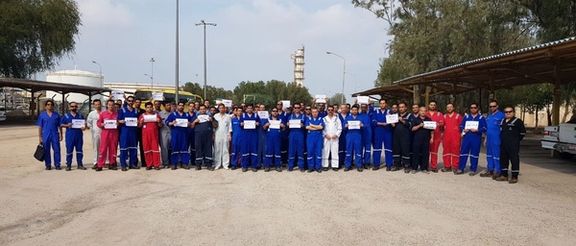
As the regime fails to address the mounting demands of retirees and workers, demonstrations and strikes continue to take place across Iran.
There were a number of protests over the weekend, including from Iran's Social Security Organization retirees, employees of the Iranian Offshore Oil Company (IOOC), and retirees and employees of the National Iranian South Oil Fields Company.
According to the regime-run Statistics Center of Iran (SCI), the household inflation rate has reached 45.5%. About one-third of the country has inflation over 50%, based on the same report, which is likely to not reveal the full picture as the regime continues to shield the dire extent of the crisis.
The International Monetary Fund (IMF) also estimates the current inflation in Iran to be 47% and food inflation in mid-summer reached 90.2% according to the Iranian Statistics Center.
Based on Volunteer Activists Institute’s (VA) data, a non-profit independent organization based in Amsterdam from April to June 2023, the number of labor protests in Iran rose fourfold compared with the same period in 2022.
Many Iranian National Oil Company operations have been transferred to quasi-private companies in recent years, and most work is done by temporary contract workers with little pay or benefits.
It is often the military or other state entities who control these so-called private companies, or well-connected regime insiders using government security forces to suppress labor demands.
This year's budget deficit may be $13.5 billion, or 30 percent, according to a report released by the parliament's research center. However, independent analysts believe it is closer to half. In addition, the report revealed a budget deficit of $10 billion in the first four months of the current year.
Experts believe it is almost a given that current and former employees in the country take to the streets to demand their livelihood, particularly given their dire economic situation and a lack of sufficient budget.
“Economic problems make it impossible for them to remain silent,” Sattar Rahmani, labor rights activist and former political prisoner, told Iran International.
“A strike in the oil and petrochemical sector is a warning to the regime, which depends heavily on these industries. They fear protests may spread in the south of Iran, and if so, the regime won't be able to handle more workers joining in,” he explained.
He believes that if the various sectors better coordinate their strikes and protests, harsh measures taken to silence them would be fatal for the regime.
A research done last year by Khalilollah Sardarnia, titled “Analysis of Social Guild Protests in Iran from Perspective of Street Politics Theory,” at Allameh Tabataba’i University, notes the lack of trust in civic-guild assemblies.
Researchers such as Sardania believe that since 2017, social and guild protests in Iran have taken a new direction. Some of the differences are attributed to "spontaneous, leaderless, innovative protest tactics." The 2019 November protests are considered to be the zenith of that wave which happened after an overnight increase in fuel prices showing the power of industrial action, not least in today's climate of unrest facing the regime.
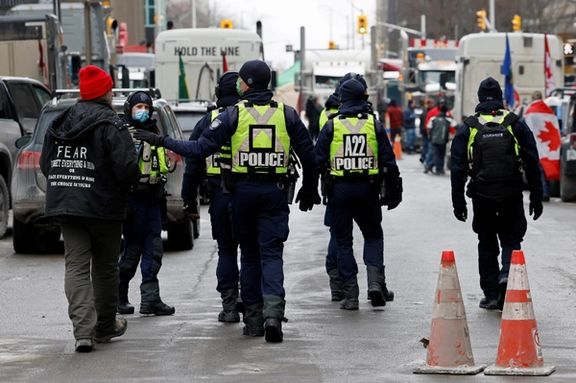
Mohammed Assadi, an Iranian from Ottawa, was apprehended near Toronto after reportedly being captured on video inciting hatred and expressing antisemitic views.
Ottawa police have filed charges against him for violating several bail conditions. Authorities are actively working to keep Assadi in custody while Toronto's hate crime unit conducts an investigation into the allegations.
Assadi made a virtual appearance in an Ottawa courtroom on Sunday, and the scheduling of his bail hearing is pending. In addition to the recent charges, he faces outstanding legal issues, including charges related to assault and breaking and entering, which are yet to be adjudicated.
Assadi is well known in the Iranian community after harassing members while wearing an IRGC Quds Force hat.
He has also harassed journalists working for the VOA while they were filing reports on Iran.
The incident comes at a time of heightened concern among Canadian police services over a surge in hate-motivated crimes, notably linked to the conflict between Israel and Hamas since October 7. The world has seen a global surge in antisemitism since Iran-backed Hamas invaded Israel when 1,200 mostly civilians were murdered and another 240 hostages taken to Gaza.
Israel's relentless retaliation has led to a humanitarian crisis in the coastal enclave as it vows to rid Gaza of the group proscribed by countries including Canada, the UK and US.
Earlier this month, Ottawa police reported several incidents, including graffiti, vandalism, hate mail, and threats targeting both the Jewish and Muslim communities. Responding to a similar increase in hate crime reports, Toronto police have expanded the size of their hate crime unit.
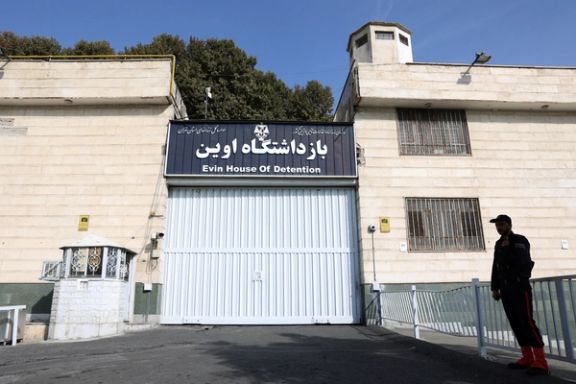
Two reporters have been summoned to Evin jail in Tehran to serve sentences for their reporting during the 2022 Women, Life, Freedom protests.
They are required to appear in Branch One of the Evin Courthouse tomorrow to receive sentences of three years and six months in jail.
The charges include “conspiracy against the system”, “engaging in anti-establishment propaganda activities.” These vague charges are routinely applied not only to protesters, but critics or artists, writers and journalists who make statements contrary to regime’s agenda.
They also face two years of travel ban, and two years of prohibition from joining groups and political parties.
Zeinab Rahimi, an environmental journalist, has also revealed that a case has been initiated against her. The charges include "spreading lies and harming public chastity." Accompanied by her lawyer, Rahimi appeared in the Culture and Media Courthouse on Sunday. After being informed of the charges, she was released on bail pending the final verdict.
Mahnaz Moazen, a journalist and translator, is also still in custody and facing uncertainty five days after her arrest. Moazen was apprehended on Thursday by security forces and transferred to an undisclosed location.
Economic reporter Maryam Shokrani took to social media on Saturday, stating, "A new case has been filed against me in Branch 16 of the Culture and Media Courthouse in Tehran. I don't even know the subject of the complaint."
The International Federation of Journalists reports that during the uprising against the Islamic Republic which began last September, at least 100 journalists in Iran have been detained, with over 21 of them receiving sentences totaling 77 years in prison.